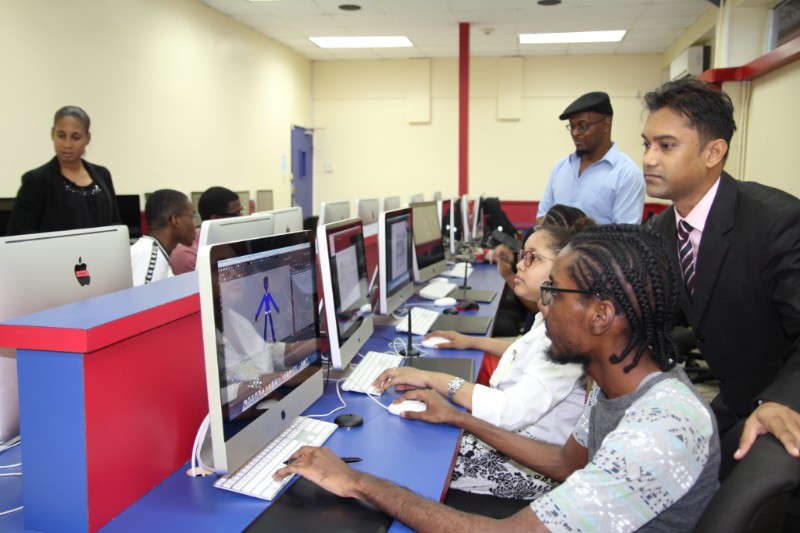Government Expands People-Focused Initiatives to Transform Lives and Strengthen Human Capital

The government is making human capital development a key priority by investing in Jamaica’s greatest asset – its people.
In his 2025/26 Budget Presentation on Thursday (March 20), Prime Minister Dr. Andrew Holness outlined a series of initiatives designed to equip Jamaicans with the skills needed for a rapidly evolving job market, particularly in high-demand fields like technology, construction, and hospitality.
“Jamaica’s greatest asset is our people. That is why this Government continues to invest in education, training, and job opportunities, ensuring that every Jamaican, regardless of background, has the chance to learn, earn, and thrive,” declared Prime Minister Holness.
Among the key initiatives is the continued expansion of the LIFT (Learning and Investment for Transformation) and CARE (Community Action for Rewarding Engagement) programmes, which provide education, mentorship, and employment support for young people.
Dr. Holness noted that the second cohort of LIFT is now underway, while over 1,250 unattached youth across all 63 constituencies are currently receiving training under CARE, with stipends and transportation support to remove financial barriers.
Prime Minister Holness emphasized the impact of these programmes, noting that since the elimination of fees, over 150,000 individuals have enrolled in HEART/NSTA Trust training programmes.
“These programmes transform lives. A school leaver from an inner-city community or a rural parish can now access training and have a real pathway to a career,” Dr. Holness outlined.
Public-private partnerships have also played a crucial role in skills training, with the apprenticeship model proving successful in areas such as data analytics, cyber security, and app development through the Amber HEART Academy.
Nearly 500 youths have graduated from this programme, most securing paid internships.
Additionally, 112 Jamaica Defence Force (JDF) soldiers are currently being trained in coding to enhance the JDF’s technological capabilities.
Building on this success, Dr. Holness announced that the government is launching an Expanded Apprenticeship Programme targeting critical industries such as construction and hospitality.
Over the next two years, 300 young people will receive hands-on, paid training alongside industry professionals, earning weekly stipends between $13,500 and $16,500, with 10% set aside for compulsory savings.
The pilot programme will be conducted in partnership with the Sandals Corporate University.
In the meantime, later this year, the Institute of Higher Apprenticeships will be established in collaboration with industry leaders and the Inter-American Development Bank (IDB). Prime Minister Holness said this institute will allow young people to gain vocational certifications while working in the field, preparing them for higher-paying jobs in logistics, manufacturing, and other sectors.
Recognizing the growing demand for Science, Technology, Engineering, Arts, and Mathematics (STEAM) skills, the government is also investing $400 million to establish STEAM labs in technical high schools across Jamaica.
These labs will feature robotics kits, virtual welding simulators, drone technology, hydroponic stations, and 3D printers to ensure students from all backgrounds have access to world-class technical education.
The Prime Minister indicated that to further support STEM talent, the BOOST (Building Opportunities for Outstanding STEM Talent) Programme will be launched next month.
Graduates of HEART’s Level 4 STEM-related courses will be eligible for grants of up to $300,000 to purchase specialized tools or software or start a business.
With artificial intelligence (AI) reshaping industries globally, Dr. Holness also underscored the importance of positioning Jamaica as an active player in the AI revolution.
The government has appointed a National AI Task Force to develop an AI Workforce Readiness Strategy, which includes integrating AI and coding into school curricula at all levels and launching a Prompt Engineering course through HEART/NSTA Trust to train students and public sector professionals in AI tools.
A state-of-the-art AI lab will also be established in collaboration with the Amber Group, serving as a hub for developers, researchers, entrepreneurs, and students to collaborate on AI solutions.
“AI will disrupt some traditional jobs, but it will also create new, high-paying opportunities. This Government is ensuring Jamaicans are equipped to seize those opportunities and lead in the digital economy,” Dr. Holness noted.
The government is also leveraging AI to transform education with the development of the Jamaica Learning Assistant (JLA), which is a groundbreaking AI-powered platform designed to personalize learning for students.
The JLA will adapt lessons to each student’s unique learning style through AI-generated content, quizzes, and interactive visuals.
The system will also ease teachers’ workload by automating lesson planning and grading. A phased rollout of the JLA will begin in September 2025, starting with Grade 3 and Grade 9 cohorts.
“This transformation is not just for students. The JLA will also be a game-changer for our teachers, allowing them to focus on what truly matters: inspiring, mentoring, and shaping young minds,” the Prime Minister said.
Dr. Holness said his administration committed to ensuring that Jamaica’s development is built on investing in its people. From expanding training and apprenticeships to preparing students for the AI revolution, the government’s people-focused initiatives are designed to create a stronger, more competitive workforce and a prosperous future for all Jamaicans.